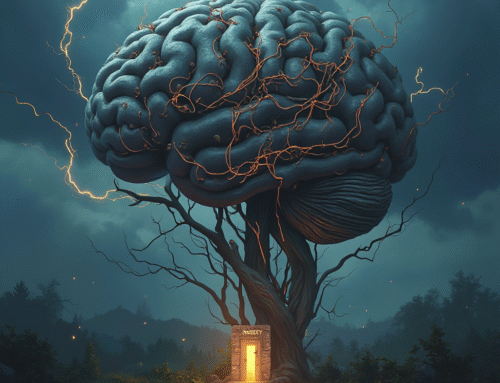Surviving the Storm: 8 Coping Strategies for Bipolar Disorder
Surviving the Storm: 8 Coping Strategies for Bipolar Disorder
Surviving the Storm: 8 Coping Strategies for Bipolar Disorder
So, living with bipolar disorder can feel like huge storm, it moves through our days with unexpected highs and lows that crush. For folks dealing with this mental health thing, it sometimes feel just way too much. Very bad bipolar disorder signs can mess up our friendships, jobs, and how we feel about ourselves. But, knowing about this disorder? Just the start in our journey. It’s important to know we’re not on our own, and there are ways to handle these ups and downs.
Way to cope with bipolar disorder can be sort of your life saver when things get wild. Using smart tricks, like these, you can get back some control over how you feel and what you do every day. These tricks gives us the tools to manage the storm, to help in making the mood changes less scary and ease worries. As we look at eight real-world ways to tackle this, you’ll finding useful tools to better your mind health and make you stronger. Let’s jump into a support lot and see how you can become better, survive even with the big challenges of bipolar disorder.
Getting to Know Bipolar Disorder
Bipolar disorder is a mind health condition, it’s kinda tricky, and it comes with big mood changes, sometimes you’re feeling super high (mania or hypomania) and other times super low (sadness). There are some kinds of bipolar disorder, like Bipolar I, which needs manic times lasting a week or need going to hospital maybe.
Bipolar II is meant to have at least one really sad time or one less mania, but no real big mania things. Also, found is Cyclothymic Disorder, having periods with too much up-and-down moods for two years (or one year in kids and teens), but not falling in the really bad sad category. Knowing these differences matters ’cause it shapes how the one experiences it and what helpful hints for bipolar disorder can work best.
People with bipolar disorder might have many signs that change a lot of what they do everyday. On days of mania, someone could be feeling super up, lots of energy and don’t need much sleep. This sometimes ends in things we shouldn’t do like spending a lot or driving crazy, it can bring problem. On downer days, sadnesses can look like you have no hope, very tired, and no interest in things you liked before.
These ups and downs can not be good for friendships, work, and how happy you are. By understanding what these signs mean, we can help them and those close to them, to seeing signs early and then acting sooner with good coping tricks.
Coping with bipolar disorder often used mind-based gentle skills that help folks stay calm in the bad times. Like, doing mindful easing can help people notice when mood start to change and keeps worried down. Stuff as simple as slow breathing or visual tune-ins not only cool you down but make you more aware, helping them handle their feelings. Adding those acts to what you do each day can give a bigger sense of control over mood changes and boost emotional steady-on.
The road through bipolar disorder, though tough, knowing its details sets solid ground for better handling it. With now knowing the bipolar disorder types and its signs, sufferers and supporters can join hands in finding help to use, and create personalized helpful codes. This ready and good thinking is key in helping feel more steady emotionally plus making well-being better than before.
Mindfulness, That’s Big
Mindfulness, it’s a very handy thing can help those with bipolar disorder handle the feelings landscape better. Basically, it’s about being here, right now, without being mean or judging it. This practice comes in different shapes, could be mindful breathing, body check-ups, or simply paying emotions attention as they pop up. For pals who feeling the heavy mood jumps bipolar disorder give them, putting mindfulness kinda things into what they day with easy, can make ’em calm among disorganized thoughts. It lets folks take breaks from heavy feelings, aiding better control on the happiness-check and being more level-headed.
One of the cool benefits of being mindful is that it can help you stop feeling so anxious `n’ stressed out, especially with the ups `n’ downs of bipolar mess. Like, doing quiet meditation for some minutes a day, could help you be at ease when you’re like freaked out.
Doing things like watching your breath or using simple mental images might just set your busy thoughts free and make you chill. Studies show doing this stuff many times, can have less stress hormone (cortisol, I think it’s called), helping you feel better. Isn’t it good to have, some balance when also dealing with your meds better, `cause less worry helps meds work, right?
Plus, being mindfulness-like helps you be nice to your own self, which is pretty big if you’re fighting the stigma `n’ stuff with bipolar times. By just trying to do mindfulness stuff, you can get to liking your emotions a bit more and not bash yourself all the time. Instead of being angry at having mood changes, you can start seeing there’re parts they’re journey. This new way of thinking might cut stress down and kinda helps one to do good stuff for one’s mental well-being, like using medicines and asking for help if needed, yes?
Putting mindfulness thingy into daily life ain’t gotta be big. Easy things like stopping to look ’round while on a walk or just setting aside time for deep, even breathin’ can be real help. As you get to know your mind `n’ feelings through mindfulness, you can discover what makes for mood change and try to handle it better, see? I’d say, getting into mindfulness could just be real change for good, equipping folks with bipolar stuff the ability to handle emotional nights with stronger heart `n’ daily peace in hearts!
Managing meds
Watchin’ over bipolar stuff usually goes with carefully sticking with medication, it makes moods even and keeps heavy episodes away. Better stick-like glue to the meds plan, dontcha think? It’s doin’ the right things the docs said, like even taking meds on days you be all right or fewer symptoms. Things gotta move along reliable track; missing meds might bring back some bad stuff and could be sad and making one’s not hopefully pushing through. If you’re lookin’ to remember to take ’em, set `em in boxes by pills or put reminders `em on your phone. Simple enough, yeah?
When takin’ meds, always have a good convo with doc-heads. I mean, it’s most fine to be asking when concerns `bout meds come by, such as weird effects. When drugs’re stressing ya, you gotta open up at appointments. Funny talks can kinda make tweaks in meds keep them whatsefver fits you truly most. Perhaps takin’ a drug makes sleepy-time a lot, might needs change to one that fills energy drink feel? Such meetings not only give support but might tighten bonds between you `n’ care team humans.
And well, after opening up, ask docs `bout why a meds plan gets this way. Seeing how drugs work together with the body may pull mysterious your treatment down. Can-it reduce medication worrying and make you’re handling of the thing more in control? And, chatting with docs over again for anyone caring check on meds helps littles changes get sorted as need comes along.
Feels like , correct med control is bit piece of bipolar handling’s harder puzzle. with a bag of tricks-–including being mindful `n’ surrounding in faithful hands-you form comfy reality for mood `n’ heart feels very carefully moving carefully many changes forward. taking good steps will (sure thing), I guess help handling of challenges with strong heart `n’ small steps toward happy feels!
Support Team Create Time
building helpful net group `s also big with game’s with dealing bipolars’s world. like may you find human nets of friends, family, I-mean everyone who gets-whocheer reading for your storms at least a bit done support timely need some trusts. To find who here helps, word sets on time and feeling gathers if opens can relate anywhere past days endig.
Find folks who really listen to you, value your feelings, and their happy to lend a hand without judging. Ever think about how just chatting with someone close can make a bond stronger? It can help them see what you need and how they can actually help you out.
Besides friends and family, finding people going through the same stuff can really perk up how you handle things. There are support groups – online or face-to-face – that give a chill spot to talk and learn from others. Groups like the National Alliance on Mental Illness (NAMI) give tips for finding support get-togethers or local programs designed for them having bipolar disorder. Getting involved in these groups can help make new pals and feel like you belong. Isn’t that important for feeling good, mind-wise?
When you’re building your group, why not try to add self-care advice stressing the need for helping each other. Maybe suggest group stuff like yoga or mindfulness classes, which helps all of you involved be great. Trying out group self-care not only strengthens friendships but also makes a place where open mental wellness talks can bloom. Really, being around understanding folk can build a base for strength and confidence as you deal with ups and downs of bipolar disorder.
While creating your support group, don’t shy away from contacting mental wellness experts. Therapists or advisors can give good ideas and help connect you to resources that might be useful. Together, a supportive team of friends, family, and experts can make a big impact in handling bipolar disorder, providing calm and power during life tough times.
Building a Daily Plan
Setting and keeping a day-to-day routine can really help folks with bipolar issues. Isn’t a steady schedule great for keeping moods in check? By adding regularly planned things like sleep, food, moving about, and work to your days, you can make things more predictable and lessen chaos with bipolar symptoms. Like, choosing a wake-up and bedtime not only helps with good sleep but brings a nice normal vibe which can be calming during rocky times.
To make a good daily plan, begin by organizing your day where responsibilities match with self-care. Important jobs first, but leave room for change – this helps keep stress away. If some days seem harder, plan for easier tasks or put in fun activities to make it feel controllable. Tools like mood-tracking apps or specific journals for mental health can help create stick to your day plan, noting patterns over time.
But, don’t think routine means set-in-stone – it’s smart to change your plan when needed. As life happens and moods shift, adjustments may be necessary. Ever check in with yourself to see what works and doesn’t? Linking up with supportive crew can also spur you on. Share your targets with pals or family who get your way; they can remind of your plans and cheer you on small wins and big.
Including breaks in your schedule is key too. This could be quiet moments for self-reflection, creative hobbies, or simply being with a good story. These rest times refuel you and keep stress at bay. At the end, daily plans should make a structure supporting mental health, not limiting it. With a bit of time and habit, a well-thought-out daily plan can be a mighty tool helping you deal with bipolar.
Dealing With Mood Shifts
Bipolar disorder’s known for big mood changes, like highs and lows. Spotting early signs of these mood jumps is key for handling them well. People could feel light shifts in energy, sleep habits, or thoughts before a full episode. Maybe you notice you’re grumpy or speedy thoughts creeping in when mania’s starting. Could paying attention to these early hints help control the strength and time of your mood swings?
Sometimes people notice early signs of mood moving up or down quickly right? When this happen, using certain tricks can help you handle these changes better. Wondering how? Well, one smart idea is to start a mood tracking book! Write down feelings you have, things you do each day, and stuff going on around you. This can help you see patterns with time.
Maybe you’ll notice that stressful situations or not getting enough sleep come before times when you feel really down. Isn’t that interesting? With this knowledge, you can change things to feel better. Try doing grounding exercises too—like deep breathing or meditation. They can really calm you when life gets stormy.
Do you know having a circle of close friends is super important for handling mood swings? Talking about how you feel with friends or family gives you both comfort and support. They can help see when you are climbing too high or sinking low and cheer you up! Online or face-to-face support groups also help a lot; you connect with people who get what you’re going through. Isn’t that cool? Chat about ways to cope and real-life stories to feel not so alone.
Managing mood swings includes self-awareness, practical tricks, and a bff environment. Noticing early mood changes and using helpful tips puts you in charge during hard times. Can asking for help be the answer sometimes? Maybe it’s support from professionals or your beloved ones helping you as you aim for steady emotions?
Looking after yourself is important though, especially if you are dealing with bipolar disorder. Doing things that make you feel good can give you balance when moods are up and down. Making time for activities that make you smile and relaxed lays ground for overcoming bipolar challenges. Treating yourself isn’t just a luxury; it’s a strategy that supports mental well-being, eases stress, and makes life more enjoyable.
Wondering how to fit self-care into daily plans without stress? Start easy by finding joy-giving activities or those that help you chill out. Something like sipping nice tea while writing feelings down, doing easy yoga, or walking cheerfully outside can do wonders.
Such stress-relieving activities not only help your body but also soothe you when emotions run wild. Also, setting time aside each week just for taking care of self sounds like fun, don’t you think? Joining an art class weekend or nighttime stick in a great novel can bring joy.
Why not try out various self-care methods to know what clicks with you best, right? Experiment with things like meditation or deep breathing that can seriously lower anxiety and help be present now. Creative outlets, like drawing or jotting down tales, also comfort at times they’re hard. Think they can serve as a smart excuse to take mind away from struggles while turning feelings into something good. Remember, it’s not selfish; self-care is super key for good mental life.
Caring for yourself gives you strength to face symptoms of bipolar better. Making these activities part of life builds a strong resilience base to protect against mood changes. Can focusing well-being help in dealing with life’s ups and downs? Probably yes, huh?
When managing bipolar takes in, might thinking of professional assistance be a step toward stability? Having therapy creates a safe space for exploring feelings deeper and understanding the condition well. If self-care activities aren’t doing the trick or mood swings become intense, should reaching out to a mental health expert maybe be considered? They create guidelines that suit there personal experiences and needs.
Okay, so, there’s lots of different therapy ways you can try each has its own good points. Cognitive Behavioral Therapy (CBT), is pretty popular for folks with bipolar disorder ’cause it helps with changing bad thinking patterns and actions that might make mood episodes worse.
Then there’s Dialectical Behavior Therapy (DBT). It’s great, especially if people deal with big feelings. DBT teaches things like being mindful, controlling emotions, and handling stress which can be really helpful for dealing with the ups and downs of bipolar. Plus, group talks with therapists can give you a sense of belonging and understanding among people having the same struggles.
It’s really important to find the right counselor who clicks with you and gets the details of bipolar disorder. Maybe try setting up first meetings with a few therapists to see if they’re a good fit. This journey is not just about finding someone to help you with your disorder; it’s also about creating a partnership based on trust and respect. Talking openly about your wants, likes, and goals for treatment can make therapy a much better experience, honestly.
Getting help from a pro ain’t a sign of weakness: it’s a strong step towards having control over your mind health. When you put therapy into your coping toolkit, you give yourself helpful tools and insights that will aid you in getting through the hard times of bipolar disorder, possibly opening a path to a more satisfying life eventually.
Homeopathic medicines for bipolar disorder
Homeopathic pills for bipolar disorder offer and new lovely way to deal with this condition. They focus on people as a full package rather than just taking away symptoms. Stuff like Arsenicum albom and Natrum muriaticum, these help balance feelings and make mind peace, ya know? These pills wants to fix the emotional mess that comes with mood swings. They kind of give you, not just peace, but they try to make you feel stable, where normal treatments don’t always look, right?
Also, homeopathy, being strange and full, gets people to think about changes to their lifestyle and to heal there feelings too, alongside with treatment. Why not try things like relaxing, eating right, or getting a good walk every day? All this together might make homeopathic pills work better.
This way helps people control their mind health and build resistance to the bipolar life’s ups and down, doesn’t it? Looking, at it all, like this, people might possibly find a more friendly road to feeling better emotionally. Isn’t it nice to consider other paths?
Finding a way that feels right to you
In the end, dealing with the hurdles of bipolar disorder can be really tough sometimes huh But the coping skills we’ve talked about can give you power to take control of your path. From doing mindfulness exercises and making a daily plan to building a supportive gang and doing self-care, each one gives you valuable tools to handle your symptoms well.
Don’t forget that looking for expert help is a key step to feeling mentally good. You’re not alone in this fight, you know what I mean? By taking these steps, you can build strength and maybe find steadiness in your life. Try these strategies out, and let them guide you through the storm. Who knows, maybe it’ll lead you to brighter days.
coping strategies for bipolar disorder
severe bipolar disorder symptoms, mindfulness techniques, medication management, emotional support, self-care tips, mental health resources, building a support network, stress reduction techniques, therapy options, lifestyle changes,
individuals with bipolar disorder, caregivers, mental health professionals, family members of those with bipolar disorder,










Leave A Comment